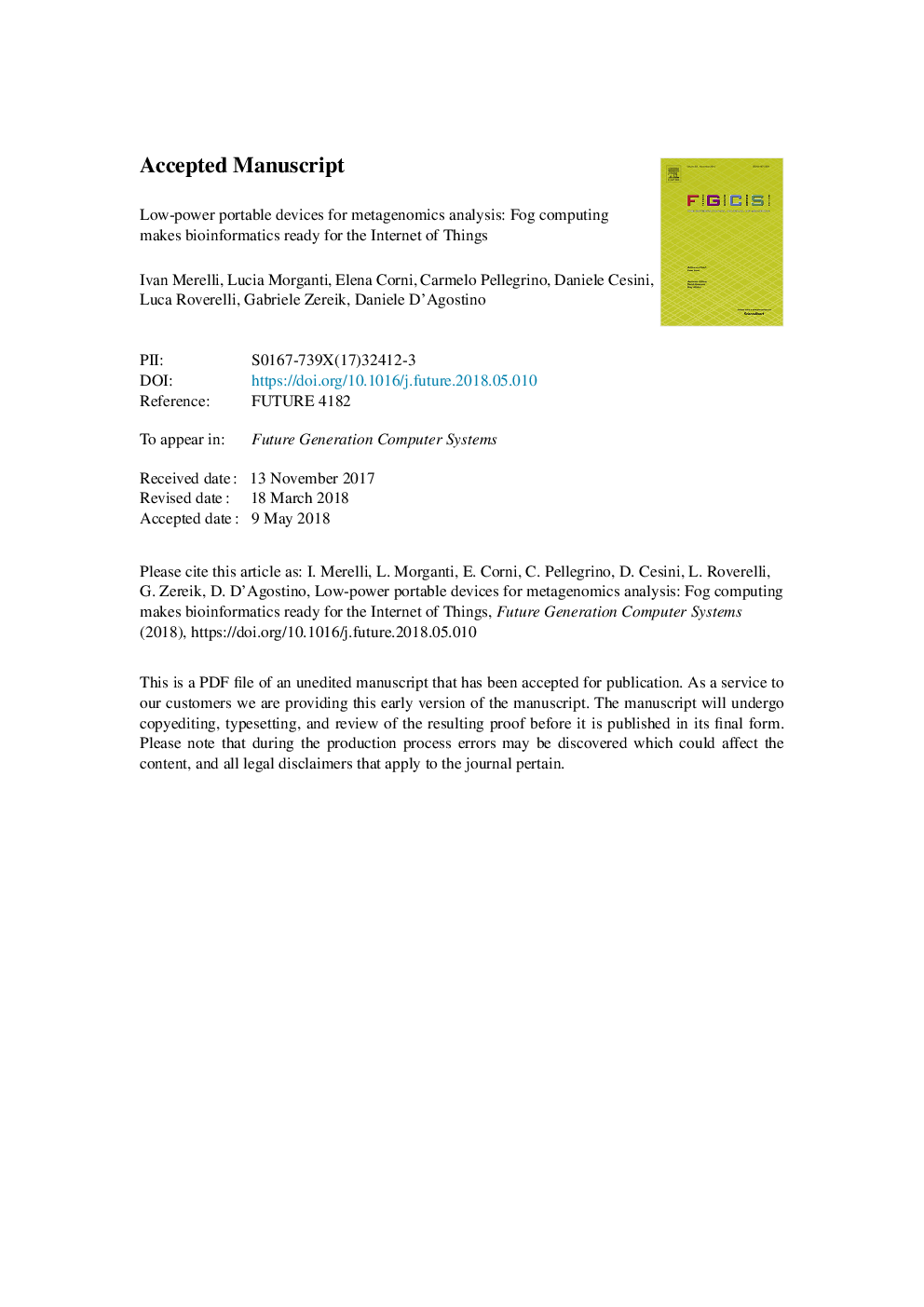| Article ID | Journal | Published Year | Pages | File Type |
|---|---|---|---|---|
| 6872886 | Future Generation Computer Systems | 2018 | 38 Pages |
Abstract
Portable sequencing machines, such as the Oxford Nanopore MinION, are making the genome sequencing ubiquitous. This can be particularly interesting for identifying specific bacteria in air-filters or waters and for monitoring the microbioma composition in cultivated soils or in different animal samples, using a simple and portable approach. However, a main problem of these portable sequencing devices is that they stream huge amounts of data, which management can be actually challenging. Low-power System-on-Chip architectures represent a feasible way for designing a solution, based on the Fog computing paradigm, for processing locally the raw data, considering both the base calling step and the genome alignment part, and for sending only meaningful results over Internet. Cloud services can be then used to collect and integrate results in a Internet of Things framework, in order to trigger notifications or alarms and, in perspective, for more sophisticated applications based on statistical or machine learning approaches.
Keywords
Related Topics
Physical Sciences and Engineering
Computer Science
Computational Theory and Mathematics
Authors
Ivan Merelli, Lucia Morganti, Elena Corni, Carmelo Pellegrino, Daniele Cesini, Luca Roverelli, Gabriele Zereik, Daniele D'Agostino,
